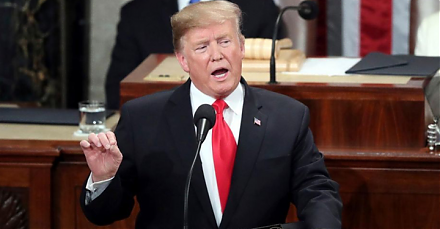

2018-07-21 13:35:00 Sat ET
technology antitrust competition bilateral trade free trade fair trade trade agreement trade surplus trade deficit multilateralism neoliberalism world trade organization regulation public utility current account compliance
President Trump supports a bipartisan bill or the Foreign Investment Risk Review Modernization Act (FIRRMA), which effectively broadens the jurisdiction of the Committee on Foreign Investments (CFIUS). This legislation gives CFIUS greater legal power to probe-and-block the acquisition of U.S. firms by foreign companies. The Trump administration advocates the fact that an expansion of CFIUS can be a powerful safety valve for future economic prosperity. In effect, this safety valve better protects the crown jewels of American technology and intellectual property from unfair trade transfers and corporate acquisitions that may threaten American national economic security.
In March 2018, CFIUS rejected the Singaporean rival Broadcom's M&A takeover of Qualcomm (a San Diego chipmaker) over 5G national security concerns. In mid-2018, CFIUS refused to approve a $1.2 billion M&A deal between MoneyGram (a Dallas money transfer company) and Ant Financial Group (a Chinese electronic-payments company). Also, CFIUS blocked the proposal from East Asian buyers to acquire a controlling equity stake in the Californian automobile LED business of the Dutch electronics giant Philips.
The new legislation grants CFIUS greater legal power to review foreign capital investment transactions beyond national economic security to U.S. competitive advantage in new industries such as 5G telecommunication and LTE broadband. Under this legislation, CFIUS can review major foreign capital investments, M&As, joint ventures, and strategic alliances that might involve the potential transfer of American critical technologies.
In accordance with the congressional mandate, CFIUS helps curb Chinese capital investments in American critical technologies that may hinder U.S. competitive advantage in emerging-industries due to national economic security concerns.
CFIUS prevents China and several other countries such as Russia, Japan, and Germany from exploiting loopholes in the current safeguards in order to acquire both sensitive and exclusive critical technologies, patents, and trademarks to the detriment of U.S. firms and inventors.
If any of our AYA Analytica financial health memos (FHM), blog posts, ebooks, newsletters, and notifications etc, or any other form of online content curation, involves potential copyright concerns, please feel free to contact us at service@ayafintech.network so that we can remove relevant content in response to any such request within a reasonable time frame.
2025-09-16 09:27:00 Tuesday ET

Stock Synopsis: With a new Python program, we use, adapt, apply, and leverage each of the mainstream Gemini Gen AI models to conduct this comprehensive fund
2018-11-27 10:37:00 Tuesday ET

Warren Buffett offloads a few stocks from the Berkshire Hathaway portfolio in mid-November 2018. The latest S.E.C. report shows that the Oracle of Omaha sol
2019-04-03 11:35:00 Wednesday ET

A Florida fintech group Fidelity Information Services initiates the largest $43 billion acquisition of the e-commerce payments processor Worldpay. Fidelity
2017-09-25 09:42:00 Monday ET

President Trump has allowed most JFK files to be released to the general public. This batch of documents reveals many details of the assassination of Presid
2019-02-06 10:36:49 Wednesday ET

President Trump delivers his second state-of-the-union address to U.S. Congress. Several key themes emerge from this presidential address. First, President
2017-07-25 10:44:00 Tuesday ET

NerdWallet's new simulation suggests that a 25-year-old millennial who earns an inflation-free base salary of $40,456 and saves 15% each year faces a 99